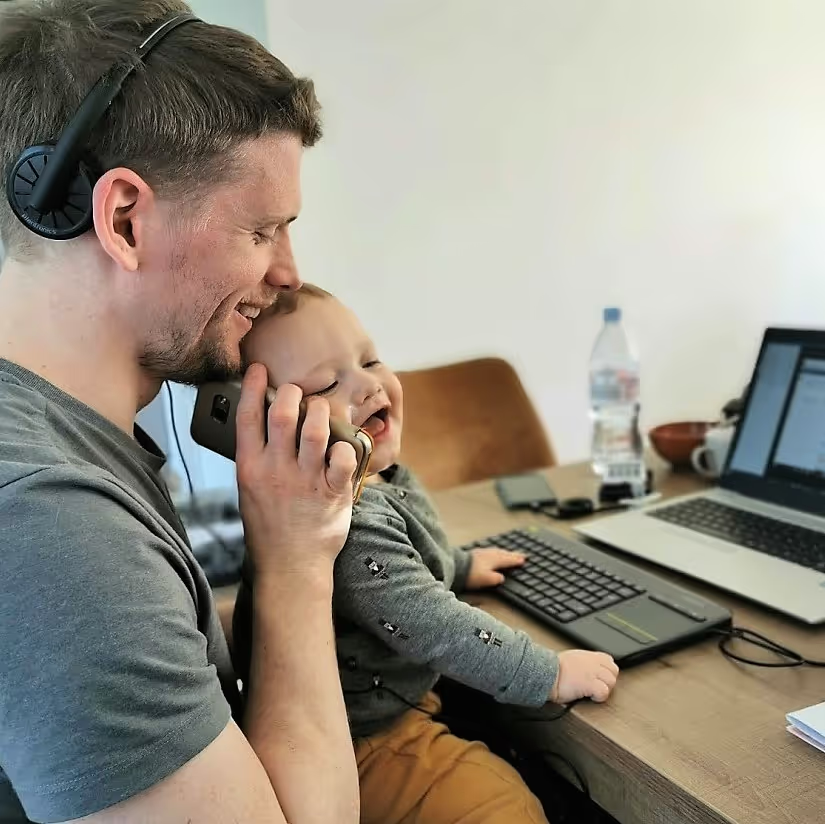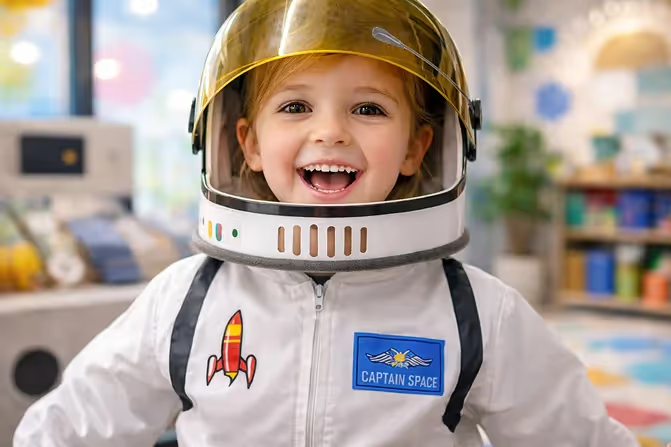Two months without school and preschool. Two months without learning? Not at all, because playing is learning!
During the COVID-19 virus lockdown, we all heard and read many things about children and families.
Like schools and preschools, families and children had to re-organize themselves from one moment to the other: teleworking, pre-teaching, closed parks, different kinds of rules, and concerns about safety, possible learning issues and how to tackle them. Teachers would enter the houses virtually, bring paper exercises, and pencils were dropped in the mailbox.
But we didn’t read much about the value of being at home, about playing, about getting bored, about what you can experience and learn at home. However, home can be a very interesting and fun learning environment.
This article addresses these issues by reporting some of the experiences of Belgian Flemish families and children during the lockdown, showing the interconnection between learning and caring. Through social media, VBJK (Center for Innovation in the Early Years) asked parents, , to share these experiences through pictures and short explanations of what their children did and what they observed. These stories have been collected by VBJK and published on its Facebook page and in an article on a local magazine (KIDDO,2020 p 15-16-17)
The discovery of the world around you
This corona time was not a long holiday. During the many weeks in lockdown, parents combined teleworking with children around them. The free time was not so free: playing in the playground, visiting grandma and grandpa and friends, shopping together, suddenly was no longer possible. The world became a cocoon, but children found the strength inside their own bubble to play with their siblings, or help with household chores, and let their imagination run wild.
‘Walking is taking risks. Ell asked for a helping hand, but once she started, she walked seven times up and down the water and the mud.’
Kaat
‘Together with Ameya and Sarayi I occasionally turned the city into our extra garden. We ticked several Italian cars on our bingo list. And the top moment of our bingo tour was throwing fallen leaves from the wisteria, which resulted in spectacular golden rainfall. Who needs confetti then?’
Annelies
'My son Theo is constantly busy. He draws a lot of lines with sidewalk chalk, and then discovers all kinds of figures. He paints and enjoys cooking. During the nature walks he discovers everything and sometimes picks a dandelion.’
Silke
‘Millie is completely under the spell of worms, so we look for bugs together when we walk. Millie wants to grab that worm, you can see the tension in her look.’
Tine
Nature offers relief
‘Go for a walk, enjoy the outdoors, and get some oxygen’: all very mature arguments. Children do not consciously choose the movement or oxygen, they choose the adventure, the small animals that live under stones and the bark of trees, the fish and frogs in the pond. Children explore their limits by jumping in puddles or just daring to climb a branch higher in the tree. Millie (below in the picture) wants to grab the worm, but will she gently grasp the animal? If she lets the worm crawl over her hand and experiences the itch, will she give the worm freedom again? Because we also teach that to our children: taking care of everything and everyone.
Children learn on their own, from other children, from the adults and from the environment. This is how children shape their development. They are entrepreneurs and researchers, all interactions enrich the experiences. And as Jean Piaget said about playing and learning: "Everything that is taught to the child prevents the child from inventing or discovering it him/herself". Therefore, let us opt for a co-construction of knowledge and experience. Doing things together, sharing experiences and developing common concepts as a breeding ground for life, to grow for life.
'Julian knows exactly what he wants. He is always ready to help. He likes to imitate the adults in their activities. Here he also imitates his dog. He is cheerful and has a great sense of humor.’
Christine
Copying (imitating) is also learning
Childcare and kindergartens have a symbolic play corner in the children’ space or classroom. The corner is a symbolic representation of ‘real’ life, and is suitable for all kinds of pretend ‘as if’ play. But at home, that world is their reality. Children help with cooking, watering flowers, sweeping, and Lucas can even assist with office work. Imitation offers an opportunity to explore boundaries and apply rules flexibly. Matilda paints herself as dad: with a mustache and black eyebrows. She is just her dad.
‘Mabel, my daughter, loves face painting: painted as Minnie Mouse,
but here she is also painted as ‘daddy’
Lies
Matilda discovers the pleasure of brushing. She discovers the on and off button of the vacuum cleaner. But there are still buttons in the house. The keys of the piano are also fascinating and the cuddly toy is also enjoying them.’
Ann-Sophie
Contact with the outside world
The digital skills received a boost. Video messages, chatting, playing online games together, it brought parents and children into contact with the outside world. Victor shows that an online game helps him to make contacts with other children. Ada is taking a programming course for children, and the parents are re-evaluating their resistance to screen time. Whatever children do, play, program or chat, they develop new skills. And if you can't go for a visit, just cut and paste a card yourself. We are almost forgetting that a postman can still deliver letters safely to our homes.
My son Victor is at the computer. Until the lockdown I was very strict on the allowed computer hours. But now I let my son play freely on Fortnite. Not really an educationally responsible game, and not really my choice. But I was pleasantly surprised to discover that he made friends through this game. He's not someone that immidiatly get to know unknown children, but through Fortnite he soon had an extensive circle of friends, and although he doesn't learn English at school yet, he talked to his online friends in English. During a bike ride, he addressed two unknown boys of his age for the first time in his life. My son learned something, and I learned that computer games have good sides.’
Fran
‘A baby was born in our circle of friends. Together we made a card, because visiting was not possible. I cut letters from magazines, Mone drew but she soon became interested in the cutting and pasting. What a concentration. Since then I have had her cut every now and then’
Naomi
Concluding reflections
The lockdown period has been a challenging period for ECEC services, schools, families, children. A challenge that can also teach us to look at things from different perspectives. Also the common thought that ‘children learn in school more then at home’ can be now seen through a different angle. The stories of parents reported in this article show how learning and caring go hand in hand, and how they can happen in very enriching and original ways also at home. This is very much in line with what we are trying to valorize through the EDUCAS project.
Read more here.
Author: Caroline Boudry, VBJK




